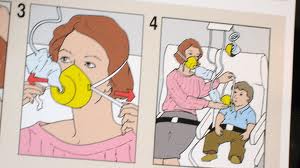“Mental health” What do these words cause you to think of? You may be imagining a therapist sitting in a chair with a notepad and a patient laying on a couch, maybe rooms with padded walls and a rec room with a ping pong paddle. You might be imagining yoga, meditation, and Prozac.
“None of those sound like me,” you may say, “I don’t have depression or OCD. I’m just having a hard time lately. I don’t need to work on my mental health. I’m normal.”
While your thoughts and anxieties towards seeking help are completely valid, a lot of the stigma around mental health treatment is simply incorrect. The world of mental health is surrounded by myths and confusion. So, to help clear things up, here are 5 untrue myths about mental health:
Only people with diagnosed conditions should seek help from a professional
Many people who speak with a counselor or doctor about their mental health are never diagnosed with any sort of clinical mental health disorder. You may be surprised at how many people in your life actually see a therapist. A survey co-sponsored by Psychology Today magazine and PacifiCare Behavioral Health, entitled “Therapy in America 2004,” found that an estimated 59 million people have received mental health treatment in the past two years, and that 80 percent of them have found it effective.

Everyone goes through hard times. Sometimes the best way to deal with those emotions and struggles is to speak with someone qualified to help you.
Mental health is not as real as physical health
“Mental pain is less dramatic than physical pain, but it is more common and also more hard to bear. The frequent attempt to conceal mental pain increases the burden: it is easier to say, ‘my tooth is aching,’ than to say, ‘my heart is broken.’”
-C.S. Lewis
“I wish that people could understand that the brain is the most important organ in your body. Just because you can’t see it like you could see a broken bone doesn’t mean it’s not as detrimental or devastating to a family or an individual.”
-Demi Lovato
You take time to worry about your physical health. You notice when you are sick and you see a doctor. Mental health is just as important and valid. Notice when you are sick and have the courage to seek out a professional who can help.
Needing help makes me weak and selfish
Seeking out help for your mental health is one of the least selfish things you can do. You need to be healthy in your body and mind to take care of others. In an airplane, in the event of cabin pressurisation system failure, you need to put on your own air mask before you help your kids with their mask. When it comes to mental health, you will not be able to fully help others with their problems until you have found some peace of your own. If you cannot breathe yourself, you cannot help someone else to breath.

And just like in the plane, it is not your fault that you cannot breathe. You are not weak because the plane is having problems. Sometimes life turns into a plane crash, through no fault of our own. The bravest among us must have the courage to keep fighting. Seeking help is choosing to keep fighting. It is brave and a wonderful example to those around you.
Getting help is hard
In the past, getting help may have been hard. However, with today’s technology, finding help with your mental health struggles could not be easier. Here are some suggestions on how to get help:
- Schedule an appointment at insaneability.org
- Call your insurance provider and ask for a list of covered mental health professionals
- Ask your primary care physician for a referral
- Search “mental health professional near me” in any search engine
When is comes to seeking help for your mental health, you may feel afraid. Those feelings are valid. I was afraid when I first sought mental health treatment. In fact, it took me years to have the courage to ask for help. But asking for help turned out to be the best decision I ever made. Finding help allowed my life to be fuller, brighter, and full of hope for the future. I promise when you make the decision to ask for help, you can also find a life with more hope for the future. Because life is better when we accept our struggles, work through them, and come out stronger on the other side.
Written by Nicole Millet